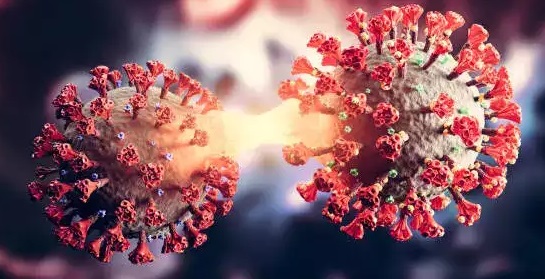New Delhi: EG.5.1, the new subvariant of Omicron, has been detected in 45 countries and is currently spreading fast, but there is no need for concern, said health experts on Monday.
Nicknamed Eris, EG.5.1 is a sub-strain of Omicron XBB and has additional mutants on the spike protein S:F456L and S:Q52H. Its speed of transmission is 45 per cent more than XBB.1.16.
According to the World Health Organization’s (WHO) latest weekly epidemiological report, EG.5.1 is showing an increasing trend. The WHO added EG.5.1 to the list of variants under monitoring in July.
“EG.5.1 has shown an increasing trend in prevalence from 6.2 per cent in week 24 (June 13-19) to 11.6 per cent by week 28 (July 11-17),” the report said.
However, “we need not panic or worry,” Dr Ishwar Gilada, an infectious disease expert, told IANS.
He explained that we need to look at the trajectory of infections caused by the sub-variant, which is defined as “how many people end up with oxygen demand, hospitalisation, ICU or deaths. If all these are low, then EG.5.1 is not going to create any problem,” added Dr Gilada.
As with Omicron, the most common symptoms of EG.5.1 include runny nose, headache, fatigue (mild or severe), sneezing and sore throat, as per the Zoe Study app.
“Eris is a newer variant of omicron which is causing a slight resurgence in Covid cases in the UK. The good news is that the symptoms are mild flu-like symptoms and there is not much increase in hospitalisations secondary to the new variant,” Dr. Tushar Tayal, Lead Consultant, Department of Internal Medicine, CK Birla Hospital, Gurugram, told IANS.
The US Centers for Disease Control and Prevention (CDC) said that the EG.5 is responsible for an estimated 17.3 per cent of all Covid-19 cases in the last week, up from 11.9 per cent in July end. EG.5 is now the most prevalent variant in the US, having surpassed the XBB.1.16, the agency said.
In the UK, as of July 20, the EG.5.1 comprised 14.55 per cent of all Covid-19 cases and has been growing at a 20.51 per cent rate per week, the UK Health Security Agency said. There has also been a small rise in hospital admission rates in most age groups, particularly among the elderly.
According to T. Ryan Gregory, Professor of Integrative Biology at the University of Guelph in Ontario in Canada, EG.5.1 “is increasing quickly in frequency and is one to watch”. It also “has an advantage over most other current XBBs”, he wrote on Twitter.
But, Dr Gilada explained that Indians are already armed with a very good natural immunity.
“Most of us have been infected at least once or twice, and most of us are vaccinated — almost 75 per cent with two doses, and another 32 per cent with the third dose. So our natural immunity as well as the vaccine immunity, which is combined qualify very, very good,” he said.
“What we need to remember is to continue following Covid safe protocol in the form of usage of triple masks in public spaces and frequent hand sanitisation. Also consult your healthcare provider in case you are suffering from flu-like symptoms,” Dr. Tayal said.
However, Dr Gilada said: “what is required is only scientific surveillance”.
(AINS)
















